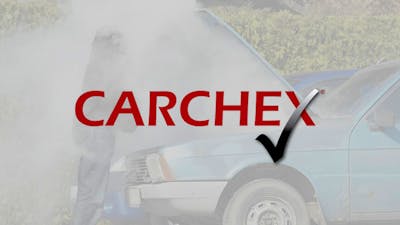Can I Use My Own Mechanic With An Extended Warranty
Is your vehicle making a scary noise guaranteed to disappear the instant you arrive at the auto repair shop? Is there a strange, smelly fluid dripping from its nether regions? When things go wrong you need to have them fixed promptly before they turn into big, expensive repairs.
If you have an extended warranty, much of the cost may be covered, but do you have to go to the dealership or can you have your own mechanic do the work? Here’s what you need to know about using your own mechanic with an extended warranty.
Popular Warranty Providers
Can I Use My Own Mechanic With an Extended Warranty
As with all questions about extended warranties, the answer is short and nebulous: “It depends.”
It’s important to note that an “Extended Warranty,” (more accurately called a “pre-paid service contract” is not the same as the new vehicle warranty that comes with every new vehicle sold in the United States.
The terms of an extended warranty can vary greatly, depending on the provider. Some extended warranties are offered through the manufacturer, and you’re required to have the services performed at an authorized retailer. Other extended warranties work with a network of approved mechanics (think of it as an HMO for your car), and still others let you get the work done at any ASE-authorized shop of your choice. It’s VERY IMPORTANT to read the terms of the service contract to really understand where you can take your car.
What is an Extended Car Warranty
An extended car warranty is a pre-paid contract between you and a third party that will pay for a specific set of repairs.. You’ll pay extra for this coverage, but how much you’ll pay depends on the car you buy and the vehicle warranty terms. Extended warranties don’t pay for everything, so be sure you fully understand what is and is not covered before you buy one.
Purchasing an extended warranty provides peace of mind so you won’t have to worry about finding the cash to pay for select repairs after the initial warranty expires, but it’s not a good call for everyone. Weigh the costs of the warranty, your ability to easily come up with the funds for repairs, and the length of time you expect to keep your car carefully before you make the purchase.
Possible Reasons Someone Might Need an Extended Car Warranty
An extended car warranty doesn’t cover every last thing that could go wrong. Things that wear out, like tires and brake pads are still going to be on your dime.
What’s covered by the extended warranty you choose is dictated VERY CLEARLY in the contract. It is incredibly important to read every word of that contract to understand what’s covered, and trust us, it’s not easy to figure out.
Some contracts offer “exclusionary coverage,” meaning that the contract is going to tell you what the warranty DOES NOT cover. Other contracts are going to offer “specified coverage” which means exactly the opposite: The contract tells you exactly what the warranty DOES cover. And sometimes extended warranty providers will mix these two in their various warranty offerings, making it very difficult to understand what’s covered.
If the manufacturer’s initial warranty coverage is low mileage or for a short timeframe and you’re concerned about having the money to cover repairs, then opting for a vehicle warranty that extends the coverage period is worth considering.
It’s also a good idea to do research on the make and model of car you’re driving to figure out whether you want to spend the extra money for an extended warranty or not. If you’re driving a Honda Civic, major mechanical failures aren’t really all that common, so it’s probably not worth betting the car is going to have one. On the other hand, if you’re driving a Range Rover and expensive repairs are just as much a part of the ownership experience has pheasant hunting and Barbour jackets, an extended warranty is a great idea.
Are Extended Car Warranties Worth The Cost?
We’ll say it again: “It depends.” The answer isn’t the same for everyone. If your blood pressure rises just thinking about paying for unexpected repairs, then an extended warranty is worth a look. The cost of the vehicle warranty can be easily budgeted so your blood pressure stays in check and your budget stays on track.
Extended warranties can also be a good idea for those who will quickly go beyond the mileage limitations of initial warranties. If you put lots of miles on your car quickly, then an extended warranty helps keep expenses down while the car is still new and you’re still making car payments.
If you aren’t as nervous about the cost of repairs, or don’t put lots of mileage on your car, then an extended warranty may not pay off. You could even end up saving money in the end if you don’t have any warranty repairs, which is often the case with newer cars that have lengthy initial warranty periods.
Pros and Cons of Extended Car Warranties
- They can be tailored to your needs.
- Reduced repair costs.
- Paperwork can be done right at the dealership.
- Makes it more affordable to keep your vehicle longer.
- Not all repairs are covered.
- You may end up paying for warranty coverage you never use.
- Extended warranties can be costly.
- You may not be able to use your mechanic for warranty repairs.
Fast Extended Warranty Rate Quotes
Call now 1-855-534-1173 or get an online quote











